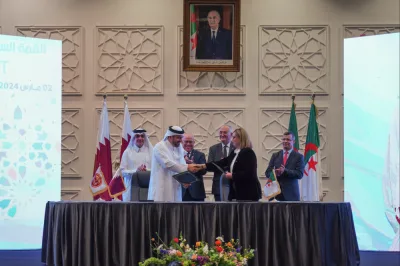Qatar affirmed its full belief in the importance of eliminating racism and racial discrimination with all its manifestations and forms, and the importance of Effective Implementation of the Durban Declaration and Programme of Action, in order to ensure that many and escalating challenges, due to the racist and discriminatory trends that a number of countries are witnessing today, are addressed.
It also affirmed the importance of the work of the Intergovernmental Working Group on the Effective Implementation of the Durban Declaration and Programme of Action, and called on Human Rights Council to support its efforts in this regard.
This came in the speech of Qatar, delivered by the Third Secretary at Qatar’s Permanent Mission to the United Nations Office in Geneva Talal al-Neamah during the discussion session on racial discrimination at the 43rd session of the Human Rights Council.
He pointed out that Qatar has paid attention, within the framework of its international initiatives, to providing quality education for those deprived of it due to poverty, conflicts, natural disasters and discrimination, out of a full realisation that education is an essential pillar for achieving development and the actual gateway to the enjoyment of all other rights.
In this regard, he pointed out that the ‘Educate A Child’ programme affiliated to Qatar’s ‘Education Above All Foundation’, in co-operation with a number of international partners, managed to enrol 10mn children in school.
He added that on the other hand, and within the framework of the open invitation to special procedures mandate holders, Qatar recently received a number of mandate holders, including the UN Special Rapporteur on Racism, in the period from Nov 24 to Dec 1, 2019.
Al-Neamah underlined that the Internet and social media provided a wide field for conveying good ideas, knowledge, and positive human experiences, but at the same time they opened the door widely to the spread of hate speech, racism, discrimination and incitement against people, especially because of their religion, colour, race, social origin and nationalities, as well as their status as refugees and migrants, etc.
He considered that this represents a new challenge that should be paid attention to and dealt with seriously, especially in light of the escalation of national populism and extremist ideologies of racial superiority in some countries.
In this regard, he emphasised the opinion of the Committee on the Elimination of Racial Discrimination on Article 4 of the International Convention on the Elimination of All Forms of Racial Discrimination (ICERD), which states that the prohibition of the dissemination of all ideas based upon racial superiority or hatred is compatible with the right to freedom of opinion and expression, in accordance with Article 19 of the Universal Declaration of Human Rights (UDHR).
The Third Secretary at Qatar’s Permanent Mission to the United Nations Office in Geneva also affirmed what was stated in the Durban Declaration and Program of Action on the importance of using information and communication technology in a manner that contributes to combating racism and racial discrimination and encourages tolerance and respect for human dignity and the promotion of the principles of equality and non-discrimination.

qatar flag


